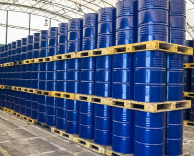Essential Properties of Steam and Gas Turbine Oil for Optimal Performance
Introduction
When it comes down to the actual power generation in any of the modern-day industries, turbines act like the heart and the efficiency of the turbine directly relies on the quality of the lubricant. Steam & Gas Turbine oils should have certain properties to provide a smooth operating environment and minimize wear and tear while eliminating failures at higher levels of extreme conditions. This guide discusses the essential characteristics that turbine oils need to provide optimal performance and reliability.
Turbine Oil Properties: Why It Matters
Turbine oils are essential for reducing friction, preventing wear and maintaining system cleanliness. Incorrect oil, or that devoid of the necessary characteristics, can cause overheating and component breakdown, as well as lowering turbine efficiency. Having the proper oil used promotes longevity, reduces downtime and maximizes performance.
Key Properties of Steam Turbine Oil
3.1 Good Demulsibility
Demulsibility is the capacity of the oil to shed water. Water contamination is a common problem because steam turbines usually work in hot, moist environments. Hydraulic oils with good demulsibility separate from water quickly and corrosion and sludge formation take place that could impair performance.
3.2 Foam Suppression and Air Release
Foam suppression means preventing foam formation that can interrupt lubrication. Fast removal of any entrained bubbles ensures adequate lubrication and alleviation of any potential cavitation damage of the turbine components.
3.3 Anti-Rust Protection
Rust proofing prevents exposed metal surfaces from oxidation by moisture. This particular property has been integral when it comes to prolonging the longevity of turbine components and maintaining operational consistency under humid or wet operating conditions.
3.4 Anti-Wear Protection (In Some Cases)
Anti-wear additives chemistries that build a protective film on the metal surface to minimize metal-to-metal surface contact. This is especially critical in turbines with high-speed or high-load components that incur wear, which can cause expensive repairs and downtime.
Important Characteristics of Gas Turbine Oil
4.1 Anti-Corrosion Protection
Gas turbine operates at a very high temperature, which makes them susceptible to oxidation. Together with corrosion inhibitors, protect against corrosive acids formed in the operation that damage both the base oil and the metal surfaces.
4.2 Scratch-Resistance (Specific Instances)
It helps protect under-loaded high-temp anti-scuff requirements. These additives undergo chemical bonding with the metal surface to provide a layer of protection where the conventional anti-wear film breaks down.
4.3 Thermal Stability
Thermal stability helps in high operating temperatures in order to
keep the oil effective. This characteristic ensures reduced
potential for oil decomposition and formation of deposits,
allowing for smooth performance of the turbine and reducing
maintenance requirements.
To know more about Minimac Systems -
Click Here.
Additional Properties for Optimal Performance
5.1 Oxidation Resistance
A major requirement for the latter is oxidation resistance — to avoid the formation of acidic by-products and sludge. It prolongs the oil life and this means less frequent replacements.
5.2 Viscosity Index
The oil should enhance the accurate lubrication under varying conditions, so it should have a high viscosity index, ensuring that the viscosity remains constant across a broad temperature range.
5.3 Contaminant Handling
The oil has specific effective contaminant-handling properties, which enable it to handle and neutralize impurities like dirt and metal particles, keeping the system clean and free of damage.
The Most Common Problems Associated with Turbine Oils
- Water Contamination: Decreased demulsibility and protection against corrosion.
- Oxidation: It causes sludge and acid formation.
- Foaming Problems: cause losses to lubrication effectiveness and operational upsets.
Turbine Oil Maintenance Best Practices
It is also important to analyze the oil inside the compressor regularly, measuring things such as viscosity, acidity and water content. BDV Testing (Breakdown Voltage Testing) should be considered one more highly important test for testing the dielectric strength of turbine oil to see whether it is or not according to standards set by safety and operation aspects. Find out more about how BDV Testing helps keep your oil reliable and your equipment protected here.
Employ filtration systems like the TOFS (Turbine Oil Filtration Systems) to eliminate impurities, such as dirt, moisture, and sludge. Such systems are introduced to increase the oil service life and optimize turbine performance under extreme operations. Check out TOFS advantages for turbine oil management here.
Selecting the Appropriate Turbine Oil
Factors should be considered regarding turbine oil selection, such as:
- Working conditions (temperature, load, and environment).
- Manufacturer recommendations.
- Certain needs, such as anti-wear or anti-scuff.
Trends in the Development of Turbine Oil for the Future
An environmental shift in the industry is the use of synthetic oils and bio-based lubricants, which have better performance, lower environmental impact and a longer service life. Additive advances are also increasing the thermal stability and oxidation resistance of current turbine oils.
Conclusion
The type and quality of the lubricating oil used have a pronounced
effect on the operation and life of the turbines. Recognizing the
necessity and prioritization of mandatory properties such
as demulsibility, thermal stability, and anti-corrosion protection
can be the difference between a highly efficient, reliable turbine
operating as few as every six years and costly premature failure.
Getting the most out of these modern lubricants is best achieved
through regular maintenance as well as through the correct choice
of oil.
Learn more about our services and industry insights by visiting
our official LinkedIn page:
Minimac Systems





